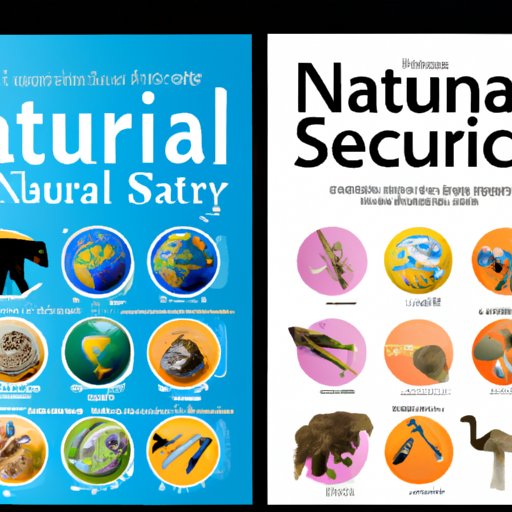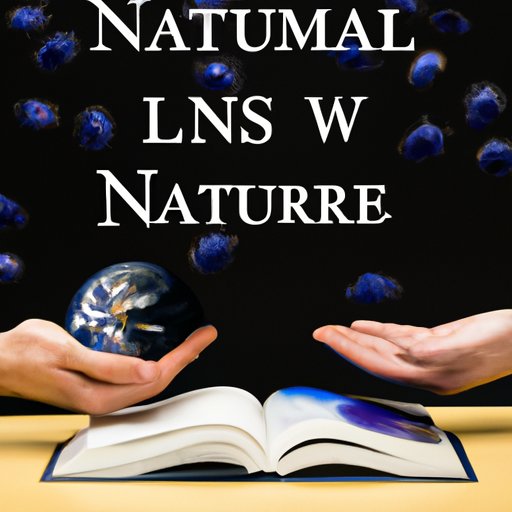Introduction
Natural science classes are an important part of any student’s educational journey. They provide a foundational understanding of the physical world and its many components, helping to prepare students for further study in science, technology, engineering, and mathematics (STEM) fields. But what exactly are natural science classes? How do you choose the best one for your interests and goals? This article will explore these questions and more, providing an in-depth look at the different branches of natural science and how they can be applied to everyday life.

A Comprehensive Guide to Natural Science Classes: From Astronomy to Zoology
Natural science is a broad field of study that encompasses many different scientific disciplines. These include physics, chemistry, biology, earth science, astronomy, and zoology. Each of these areas of study has its own unique set of benefits, challenges, and opportunities.
Exploring the Different Branches of Natural Science: Benefits, Challenges and Opportunities
Physics is the study of matter, energy, and their interactions. It is an essential component of natural science classes, as it helps us understand the fundamental principles of the universe. By studying physics, students gain an understanding of the laws of motion, forces, and energy, as well as how they affect the physical world around us.
Chemistry is the study of the composition, structure, and properties of matter. It is often used in conjunction with physics to better understand the behavior of atoms and molecules. Chemistry classes provide students with an understanding of the elements and compounds that make up our physical world, as well as the interactions between them.
Biology is the study of living organisms and their relationship to their environment. In biology classes, students learn about the anatomy and physiology of plants and animals, as well as the evolution of species over time. Through this knowledge, students gain an appreciation for the complexity and diversity of life on Earth.
Earth science is the study of the planet we live on. This includes topics such as geology, meteorology, oceanography, and environmental science. By studying earth science, students gain an understanding of the interconnections between the atmosphere, hydrosphere, biosphere, and lithosphere.
Astronomy is the study of the universe beyond our planet. It involves exploring the stars, planets, galaxies, and other celestial bodies in the cosmos. Astronomy classes offer students an opportunity to explore the mysteries of the universe, from the formation of galaxies to the search for extraterrestrial life.
Zoology is the study of animals and their behavior. In zoology classes, students learn about the anatomy and physiology of animals, as well as their behaviors and habitats. Through this knowledge, students gain an appreciation for the diversity and complexity of life on Earth.
Natural Science Classes for Every Level: Beginner, Intermediate and Advanced
No matter what level of experience you have, there are natural science classes available to suit your needs. For beginners, introductory courses are available in each of the different branches of natural science. These courses provide an overview of the fundamentals and an introduction to key concepts. For those looking for a more advanced level of study, upper-level courses are also available, covering topics such as quantum mechanics and evolutionary biology.

An Introduction to the Fascinating World of Natural Science: Why It Matters
Learning natural science can be beneficial in a variety of ways. Studies have shown that understanding the fundamentals of natural science can help students develop problem-solving skills, critical thinking abilities, and an appreciation for the interconnectedness of the world around us.
In addition to the academic benefits, natural science can also be applied to everyday life. An understanding of the physical world can help us better appreciate the beauty of nature, while knowledge of chemistry can help us understand the composition of materials and the effects of certain substances. Furthermore, an understanding of biology can help us appreciate the complexity of living organisms and the importance of preserving biodiversity.
Investigating the Different Types of Natural Science Classes: What to Expect
When taking natural science classes, students can expect to participate in a variety of activities. These may include laboratory experiments, lectures and discussions, and assignments and projects. Laboratory experiments allow students to observe and measure physical phenomena first-hand, while lectures and discussions provide an opportunity to discuss ideas and theories with peers and professors.
Assignments and projects also form an important part of natural science classes. These give students the chance to apply their knowledge in a practical setting, allowing them to develop problem-solving and critical thinking skills. Projects may involve designing and conducting experiments, analyzing data, or creating presentations to share their findings.

Learning Natural Science in the Classroom: Strategies for Success
To get the most out of natural science classes, it is important to develop effective study habits. This includes setting aside dedicated time for studying, reviewing notes on a regular basis, and asking questions when needed. Additionally, utilizing class resources such as textbooks and online materials can help students stay ahead of the curve.
Working with peers and professors is another key strategy for success. Peers can provide support and guidance when needed, while professors can offer valuable insights into the material. Finally, making use of study groups and tutors can also be beneficial, as they can provide additional support and help with difficult concepts.
Conclusion
Natural science classes provide students with an opportunity to explore the fascinating world of science. They offer a range of benefits, from developing problem-solving skills to gaining an appreciation for the complexity of the physical world. To ensure success in these classes, it is important to develop effective study habits, utilize class resources, and work with peers and professors. With the right strategies and dedication, natural science can be both rewarding and enjoyable.
Summary of Key Points
Natural science classes cover a wide range of topics, from physics to zoology. These classes provide students with an understanding of the physical world, as well as the benefits and applications of learning it. To achieve success in natural science classes, it is important to develop effective study habits, utilize class resources, and work with peers and professors.
Final Thoughts
Natural science classes provide an invaluable opportunity to explore the world around us. By studying the different branches of natural science, students gain an appreciation for the complexity and interconnectedness of the physical world. With the right strategies and dedication, natural science can be both rewarding and enjoyable.
(Note: Is this article not meeting your expectations? Do you have knowledge or insights to share? Unlock new opportunities and expand your reach by joining our authors team. Click Registration to join us and share your expertise with our readers.)
